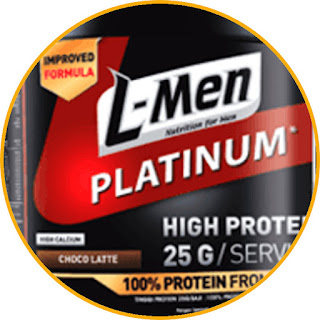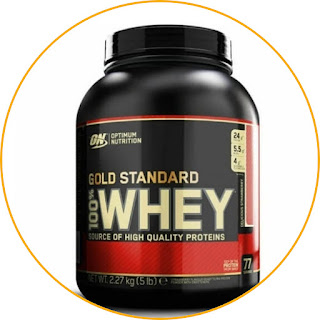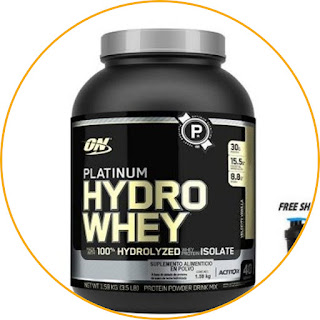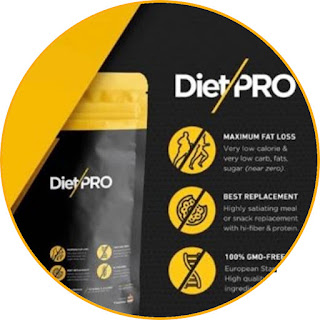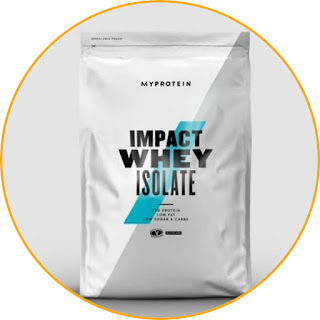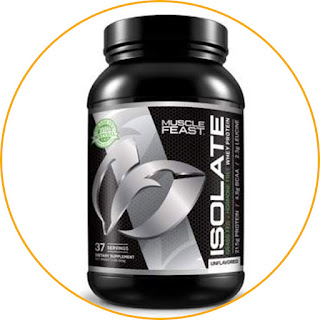What is whey made of?
Basically, whey protein is a type of protein that is obtained from cow's milk through a filtering process and can be broken down into smaller protein particles, such as lactoferrin, immunoglobulin, lysozyme, glycomactropeptide, and many more.
What is whey protein?
Whey protein, is also a type of nutrient that plays a role in increasing the strength and mass of muscle tissue. Therefore, this protein is quite popular for consumption by people who want to build their body muscle mass.
Protein is essential for muscle growth. Many athletes and sports enthusiasts consume protein shakes from protein powders because they believe that these drinks will help build muscle after strength training.
What are the advantages of Whey Protein?
Because it is made from milk, whey protein has the advantage of being very quickly absorbed. Whey protein can be digested by the body approximately two hours after consumption. Thus, whey protein is the perfect protein supplement for you to take after workouts. In general, athletes and bodybuilders consume whey protein along with additional supplements such as BCAAs to strengthen their muscles.
Another advantage of whey protein is that it dissolves easily in water and is produced with delicious flavors. Various flavors of whey protein have been widely sold in the market. You also find it easier to choose what suits your taste.
How to choose whey protein
Before you look at the list of product recommendations, please know the four point tips below!
Check the whey protein content and method of manufacture
There are three types of whey protein on the market. Each product contains different protein, additives and absorption rates. In addition to looking at the price, also consider the benefits of whey protein that you want to choose to better suit your diet and muscle building program.
Whey Protein Concentrate (WPC): protein content of 80%. The price is relatively economical
Whey Protein Concentrate (WPC) is a relatively economical source of whey and is ideal for beginners. The protein content of WPC is usually around 80% which is slightly lower than other types of whey protein. Even so, whey concentrate has the advantage of containing bioactive substances that have a good effect on body health.
However, please note that WPC contains lactose. Thus, WPC is not suitable for those of you who are allergic to milk or have lactose intolerance because it can cause indigestion or diarrhea.
WPC can also be an option for those of you who want to gain weight. In addition, WPC is also recommended as a dietary supplement for those of you who want to increase daily protein needs.
Whey Protein Isolate (WPI): protein content of 90%. Source of pure whey that does not interfere with digestion
Previously, it has been explained that WPC still contains other nutrients besides protein. Now, if you don't want to consume other extra substances, or can't consume milk (lactose), choose Whey Protein Isolate (WPI) or commonly called whey isolate. WPI has a higher protein content, is lower in fat and carbohydrates, and without the addition of other substances such as lactose.
There are two types of WPI that you can find on the market. There is a WPI which is produced by the ion exchange method and has a protein content of 90%. There is also a WPI processed by the Cross Flow Microfiltration (CFM) method with a protein content of 85%. For a more efficient consumption of protein, choose the ion exchange type WPI. However, keep in mind that this type does not contain any other physiologically active substances, only pure protein.
Whey Protein Hydrolysate (WPH): 95% protein content. More quickly absorbed by the body
Whey Peptide Hydrolyzate (WPH) is also known as whey peptide. This source of whey has a protein content of about 90% or greater than other types of whey protein. WPH is also very suitable for those of you who do not want to consume additional substances other than protein.
The advantage of WPH is that it is absorbed very quickly by the body. This is because the complex protein substances in WPH have been broken down into simple peptide pieces. However, WPH has a relatively higher price than other types. This may be your consideration before buying.
In addition, because it has the highest protein content, WPH is perfect for cutting or weight loss programs. Not only that, those of you who want to speed up protein absorption and muscle recovery are also advised to consume WPH.
Find a whey protein flavor that suits your taste
The next important point is to choose the taste of whey protein that suits your taste. If you like rich flavors, go for the chocolate variant. However, if you prefer to drink a fresh tasting drink after your workout, choose a fruity flavor like strawberry.
For those of you who are beginners, choose products that are easy to drink. Whey protein drinks generally have a unique aroma and taste. If you are a beginner and are still unsure about the taste, choose a product that is delicious and can be enjoyed in one gulp. Last but not least, don't forget to check reviews from other consumers to confirm whether the product tastes delicious.
Most of the people prefer vanilla and chocolate flavors which are considered the safest. However, if you still don't know what taste best fits on your tongue, try sachet or trial pack whey protein.
Many whey protein products taste delicious even if you just mix them with plain water. However, if you are not used to consuming whey protein, it may taste a little off. If so, try mixing whey protein with soy milk, low-fat milk, fruit juices, or something else. You can also enjoy whey protein more deliciously and comfortably.
Make sure the whey protein of your choice is water soluble
Make sure you always check whether the product of your choice is soluble in water or not. You don't want to buy it in vain. Typically, whey protein manufacturers always produce water-soluble products as a selling point. However, there are still products that are difficult to dissolve on the market. Before buying, check the reviews of other buyers.
Depending on your needs, choose whey protein that contains additional BCAAs, glutamine, carbohydrates, and others
To be able to absorb protein efficiently, it is recommended that you get carbohydrate intake. If you can't eat foods that contain carbohydrates after exercise, choose whey protein with sufficient carbohydrate levels as a substitute.
As an alternative, you can also choose whey protein that contains amino acids such as Branch-chained Amino Acid (BCAA), glutamine, and other nutrients to optimize the effect of muscle training. If you want to buy whey protein that is suitable not only for exercise, but also for a healthy diet and lifestyle, look for products that are fortified with vitamins and minerals.
However, be careful because there are also doping whey proteins out there. For big competitions like the Olympics, there is always a health check like a doping test. So, make sure the product of your choice has been tested and has a certification that is free of doping or other hazardous substances.
The best recommended whey protein powder product
Now that you know the things that need to be considered in choosing a whey protein drink, now is the time for plengdut.com to recommend the best products for you. Choose the one that best suits your needs!
- BPI Sports Bulk Muscle XL
- Dymatize ISO100 Hydrolized
- BSN Syntha-6
- L-Men Platinum Fitness Supplements & Whey Protein Milk
- Optimum Nutrition Gold Standard 100% Whey
- Optimum Nutrition Platinum Hydrowhey
- Scitec Nutrition Protein Coffee
- MusclePharm FitMiss Delight Protein Shake
- FITlife Diet Pro
- Myprotein Impact Whey Isolate
- Muscle Feast Grass Fed & Hormone Free Whey Protein Isolate
When is the right time to consume whey protein powder?
The ideal time to consume whey protein depends on the goals of your exercise program. For example, if you have a rather sensitive digestion, you can eat whey protein 20-30 minutes after a workout. In addition, you can also consume slow-absorbing protein before bed to restore damaged muscles after weight training.
You also need to consider the amount of daily protein intake according to your diet and activities. If you exercise for 30 minutes 4-5 days a week, the amount of protein intake you need to consume is 1 gram of protein times your body weight in kilograms.
For example, if you weigh 60 kg, your minimum daily protein intake is 60 grams of protein. Meanwhile, if you are running a fairly strenuous exercise program, your protein requirement is 1.5 grams per kilogram of body weight.
If you are required to consume large amounts of it, you can increase the frequency of drinking, but by reducing the number of doses in one consumption. This will reduce the burden on your body.





